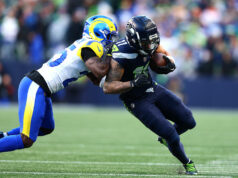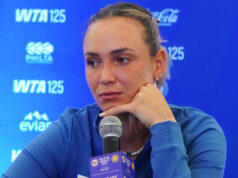Hindsight always makes for 20/20 vision, so the wave of second-guessing that occurred in the aftermath of Kevin Durant’s ill-fated return to the court the other day was nothing if not predictable. The conditions behind his cameo appearance in Game Five of the Finals served only to make it more pronounced. He had been out for a month due to a right calf strain, and, with the Warriors down 1-3 and needing him to suit up just to survive, he — and, just as importantly, those around him tasked with giving him the medical clearance to play — faced the kind of pressure that leans, if not clouds, judgments in favor of taking on more risk. And, following the unfortunate turn of events, pundits have seen fit to view the decision in a manner that depicts all who gave the green light as reckless gamblers.
Significantly, even Durant finds himself portrayed as an incautious protagonist desperate to change the narrative that he was a softie who couldn’t play through pain as real superstars are wont to do, and as his own teammates Klay Thompson and Kevon Looney for and have. Sure, the final go-ahead wasn’t his; nonetheless, he pushed for it, mindful of the opportunity to turn the narrative in his favor. Finally, he can prove to all and sundry that he isn’t just a ring chaser who joined the already-complete Warriors in 2016, and that he is, in fact, a difference maker who deserves the status of the best of the best.
Perhaps Durant shouldn’t have taken the bait. After all, he has two Finals Most Valuable Player awards in his mantel as definitive proof of his importance to the Warriors’ cause. Moreover, there can be no convincing naysayers only too willing to cherry-pick bits and pieces of information to fit preconceived notions. That said, he’s an athlete who simply cannot escape the lure and allure of competition. And he’s well aware of his transcendent talents, and the compelling calling to display them in his sport’s grandest stage. In this regard, the blame, if any, isn’t his to absorb. The assignment, if a must, falls on those whose prime responsibility should have been to save him from himself.
Understandably, talk in hoops circles has gone beyond the Finals and into the longer-term effects of Durant’s Achilles injury. Armed with a $31-million opt-in alternative covering the year in which he will be sidelined, is he still determined to test free agency? Will franchises previously waiting to line up on his doorstep still angle for his services, knowing full well the protracted period he requires to rehabilitate and get back to shape? Will other players who wanted to team up with him now be compelled to look elsewhere? And will the Warriors be overcome with guilt as to offer him a supermax deal at the expense of their immediate future?
These and countless other questions will be answered in due time. What won’t is how quarters from the outside looking form opinions on their supposed heroes based not on actual performances, but on heightened, often unrealistic, expectations. The irony is clear, especially in light of Kawhi Leonard’s spectacular exertions throughout the 2019 Playoffs as an offshoot of the Raptors’ conscious commitment to stick to a “load management” program that limited him to 60 games in the regular season. No doubt, Durant wouldn’t have been anywhere near the court were the Warriors not in the Finals and gasping for life. Parenthetically, he shouldn’t have been anywhere near the court, period.
Under the circumstances, the ideal offshoot would be for the pro hoops scene to learn from Durant’s plight enough not to place outsized burdens on its leading lights. The crow would turn white before it happens, though. Fashionable accounts call for acts of bravery and the constant bucking of seemingly insurmountable odds. Scrutiny is otherwise inevitable. Meanwhile, repercussions are felt, fingers are pointed, and stages are reset for the next great otherworldly effort. The goal is for life to become great theater and not the other way around. It’s the way the National Basketball Association has long been, and the way it will always be.
Anthony L. Cuaycong has been writing Courtside since BusinessWorld introduced a Sports section in 1994. He is the Senior Vice-President and General Manager of Basic Energy Corp.



